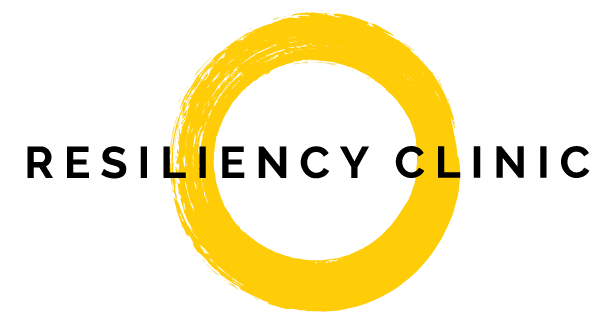Key Highlights
- Forgiveness is a choice that can bring emotional aikido, disarming our perceived opponents with patience and calm.
- Forgiveness is a gift that can be given to oneself or to others, and it is a quality that can describe a relationship- Cultivating forgiveness as an ongoing practice can lead to a more peaceful future.
- The process of forgiveness involves letting go of resentment and bitterness and finding emotional relief and healing.
- Forgiveness has numerous mental health benefits, including reduced negative emotions and improved coping mechanisms.
- Mindful techniques such as radical acceptance and cognitive-behavioural techniques can help promote forgiveness.
What is Forgiveness? Introduction
Forgiveness has been discussed and explored for centuries. Many religious and philosophical traditions see it as a virtue and a moral obligation. However, forgiveness is not just a spiritual or moral concept; it is also a psychological process that can profoundly impact our well-being.
This blog will explore the essence, misconceptions, and the mental health benefits it can bring. We will also examine the process of forgiveness, from recognizing hurt and anger to stepping into the offender’s shoes and deciding to forgive. Additionally, we will explore mindful techniques that can help promote forgiveness, such as radical acceptance and cognitive-behavioural approaches.
By understanding the psychology of forgiveness and learning how to cultivate it in our lives, we can experience greater emotional relief, improved mental health, and enhanced overall well-being. So, let’s dive into the key insights into the psychology of forgiveness and discover its transformative power.
Forgiveness in Psychology
In psychology, forgiveness is viewed as an individual, voluntary internal process of letting go of feelings and thoughts of resentment, bitterness, anger, and the need for vengeance and retribution. It is a complex psychological construct that has been studied extensively by researchers who stress different aspects of forgiveness in their theories. Positive psychology, in particular, has emphasized forgiveness as a character strength and a virtue worth cultivating for greater well-being, often through the use of psychotherapy or counselling.
The Essence of Forgiveness
At its core, forgiveness is an act of letting go. It is a conscious choice to release negative emotions and thoughts associated with a hurtful or unjust event. Forgiveness requires emotional intelligence, the ability to understand and manage one’s own feelings and empathize with others. By practicing forgiveness, individuals can experience a sense of peace of mind and emotional relief. It is an act of freeing oneself from the burden of anger, resentment, and the desire for revenge. Forgiveness is not about condoning or excusing the offence but rather about finding inner peace and moving forward in a healthier and more positive way. It is a powerful tool for personal growth and well-being.
Misconceptions About Forgiveness
There are several common misconceptions about forgiveness that can hinder our understanding of its true nature. One misconception is that forgiveness means forgetting or condoning the offense. However, true forgiveness does not require us to forget what happened or excuse the behavior. It is about letting go of deeply held negative feelings and finding a place of peace within ourselves through different definitions of forgiveness.
Another misconception is that forgiveness is a sign of weakness or a lack of justice. In reality, forgiveness requires strength and courage. It is a personal choice to rise above anger and resentment and seek healing and growth. Forgiveness does not mean that the offense is justified or that the offender should not face consequences for their actions. It is about finding inner peace and reclaiming our power from unhealthy anger.

The Mental Health Benefits of Forgiving
Forgiving has numerous mental health benefits. Research has shown that forgiveness can lead to reduced levels of negative emotions such as anger, resentment, and anxiety. By letting go of these negative emotions, individuals can experience greater emotional well-being and improved mental health. Forgiveness is also associated with improved coping mechanisms and increased levels of positive emotions such as empathy, compassion, and love. Emotional forgiveness, in particular, can bring relief from emotional pain and promote healing. By cultivating forgiveness and incorporating it into positive clinical psychology practices, individuals can enhance their overall mental health and well-being.
Emotional Relief and Healing
One of the key mental health benefits of forgiveness is emotional relief and healing. Holding onto anger, resentment, and bitterness can take a toll on our emotional well-being, leading to increased stress and anxiety. By choosing to forgive, we release these negative emotions and allow ourselves to experience positive emotions such as compassion, empathy, and love. This shift in emotions can be a powerful coping mechanism, helping us to navigate difficult situations and find inner peace. Through forgiveness, we can find emotional relief from the pain of past hurts and open ourselves up to healing and growth, leading to increased optimism for the future.
Impact on Physical Health
In addition to its mental health benefits, forgiveness can also have a positive impact on physical health. Research has shown that holding onto anger and resentment can contribute to increased blood pressure and heart rate, which are risk factors for cardiovascular disease. By choosing to forgive, individuals can experience a decrease in these physiological markers of stress, leading to improved physical health. Forgiveness has also been associated with lower levels of chronic pain and improved immune system functioning. By letting go of negative emotions and finding inner peace, individuals can promote their overall physical well-being.

The Process of Forgiveness
Forgiveness is a process that involves several stages. The first stage is recognizing the hurt and anger caused by the offense. This acknowledgment allows individuals to begin the process of healing and letting go. The next stage is empathy, where individuals step into the shoes of the offender and try to understand their perspective. This step can foster compassion and pave the way for reconciliation. The final stage is the decision to forgive, which involves making a conscious choice to release negative emotions and find peace within oneself. The process of forgiveness is individual and unique to each person, but it can lead to emotional healing and personal growth.
The complex psychological process of forgiveness can involve various dimensions, including spirituality and beliefs in a higher power such as God. Many individuals find solace in seeking forgiveness through their faith or by relinquishing the event to a Higher Power, expecting divine justice to be served.
Recognizing Hurt and Anger
The first stage of the forgiveness process recognizes the hurt and anger caused by the offence. This stage involves acknowledging the negative emotions and the sense of injustice experienced as a result of the transgression, especially from family members. It is important to allow oneself to fully feel these emotions and understand the impact they have had. Recognizing the hurt and anger is a necessary step toward healing and letting go. Coping with these negative feelings can involve seeking support from loved ones, engaging in self-care activities, and practicing mindfulness or other stress-reducing techniques. By acknowledging and addressing these emotions, individuals can begin to move forward on the path to forgiveness.
Empathy: Stepping into Their Shoes
Empathy plays a crucial role in the forgiveness process. It involves stepping into the shoes of the offender and trying to understand their perspective, even if they exhibit traits of narcissism. By practicing empathy and perspective taking, individuals can cultivate compassion and develop a deeper understanding of the factors that may have contributed to the offense. This process can help shift the focus from anger and blame to a desire for reconciliation and healing. Empathy allows individuals to see the humanity in the offender and fosters a sense of common humanity. By embracing empathy, individuals can lay the groundwork for forgiveness and open the door to reconciliation and a renewed sense of connection.
The Decision to Forgive
The decision to forgive is a deeply personal choice. It involves making a conscious decision to release negative emotions and find peace within oneself. The decision does not mean condoning or excusing the offence but rather choosing to let go of the anger and resentment that can weigh us down. By practicing decisional forgiveness, individuals can experience personal benefits such as increased emotional well-being, improved relationships, and a sense of inner peace. The decision to forgive, whether it be forgiveness of others or oneself, is not always easy, and it may require a long time for reflection and introspection. It is a process that can be guided by various aspects of forgiveness, such as understanding, empathy, and the desire for personal growth. Ultimately, the decision to forgive is a powerful act of self-care and a step towards a more fulfilling and peaceful life.

Forgiveness and Relationships
Forgiveness plays a pivotal role in relationships, shaping the dynamics and outcomes. In intimate bonds, practicing forgiveness fosters deeper connections by resolving conflicts and promoting empathy. Aspects like trust, compassion, and emotional intelligence are heightened through the act of apologizing and seeking forgiveness, contributing to the resilience of the relationship. Research published in journals like the “Journal of Personality and Social Psychology” delves into how apologies and forgiveness impact interpersonal bonds, emphasizing their significance in maintaining healthy and fulfilling relationships. Understanding and embracing apologies and forgiveness within relationships can lead to increased satisfaction, reduced conflicts, and a sense of unity and understanding between individuals, creating a positive environment for growth and mutual support, even when holding a grudge may seem easier.
Rebuilding Trust
Rebuilding trust is a complex process deeply intertwined with the psychology of forgiveness. It involves acknowledging past transgressions, fostering empathy, and nurturing a sense of common humanity. Research from the American Psychological Association highlights the significance of forgiveness interventions in restoring fractured relationships. Worthington & Scherer’s Reach Forgiveness Model emphasizes the importance of emotional intelligence and positive emotions in rebuilding trust. Individuals navigate this journey at their own pace based on individual differences and personality traits, paving the way for reconciliation and peace of mind. Desmond Tutu’s work on forgiveness underscores the transformative power of rebuilding trust, offering insights into the healing potential it holds within interpersonal dynamics.
Setting Boundaries Post-Forgiveness
Setting boundaries post-forgiveness is crucial for maintaining self-respect and ensuring healthy relationships. When setting boundaries, individuals need to communicate their needs clearly and assertively, drawing on emotional intelligence to navigate complex situations. Individuals can protect themselves from potential harm by establishing boundaries while fostering forgiveness. It’s essential to distinguish between forgiveness and reconciliation, understanding that forgiveness does not always necessitate a full restoration of trust or relationship. Establishing clear boundaries post-forgiveness can help individuals heal and move forward while preserving their well-being and peace of mind.
Mindful Techniques that Promote Forgiveness
Mindful techniques can be powerful tools for promoting forgiveness. Mindfulness involves cultivating awareness and non-judgmental acceptance of the present moment. By practicing mindfulness, individuals can develop a greater sense of self-awareness and emotional regulation, which are foundational for forgiveness. Meditation is another mindful technique that can promote forgiveness. Meditation practices such as loving-kindness meditation can cultivate feelings of compassion and empathy, making forgiveness more accessible. Finally, resilience plays a key role in forgiveness. Developing resilience through mindfulness and other techniques can help individuals bounce back from adversity and find the strength to forgive.
Radical Acceptance
Radical acceptance is a mindful technique that can promote forgiveness. It involves fully accepting the reality of a situation, including the pain and hurt caused by the transgression. By practicing radical acceptance, individuals can let go of resistance and find peace in the present moment. Acceptance does not mean condoning or excusing the offence; rather, it is about acknowledging the reality of what has happened and finding a way to move forward. Radical acceptance can be a powerful tool for releasing anger and resentment and opening oneself up to forgiveness. It allows individuals to free themselves from the burden of holding onto negative emotions and find a sense of peace and well-being.
Cognitive Behavioral Techniques
Cognitive-behavioral techniques can be effective in promoting forgiveness. These techniques focus on identifying and challenging negative thought patterns and replacing them with more positive and forgiving thoughts. By recognizing and reframing unhelpful thoughts, individuals can change their perception of the offence and the offender. Cognitive-behavioral therapy, a form of therapy that incorporates these techniques, has been shown to be effective in promoting forgiveness. It helps individuals develop new ways of thinking and behaving that support forgiveness and well-being. By changing our thoughts, we can change our behaviour and cultivate a more forgiving mindset.
Meditation and Reflection
Forgiveness can be cultivated through practices such as meditation and self-reflection. Meditation helps individuals develop a sense of inner peace and calm, which can contribute to the act of forgiveness. By focusing on the present moment and acknowledging one’s feelings without judgment, meditation allows individuals to gain clarity and perspective. Self-reflection, on the other hand, involves introspection and examining one’s thoughts and emotions related to forgiveness. It helps individuals understand the root causes of their anger and resentment, enabling them to let go of negative emotions and reflect on how they may have grown from the experience and the act of forgiveness itself. Both meditation and self-reflection can be powerful tools in developing forgiveness as an ongoing practice.

Overcoming Resistance to Forgiveness
Resistance to forgiveness can arise due to various emotional barriers, challenging the forgiveness process. These emotional barriers may include anger, resentment, fear, or a desire for revenge. Overcoming resistance to forgiveness requires a willingness to confront and address these emotions. It involves a gradual change process that involves self-reflection, empathy, and a commitment to letting go of negative emotions. By understanding the underlying reasons for resistance and working through emotional barriers, individuals can overcome resistance and embark on a journey toward forgiveness.
Addressing “Letting Them Off the Hook”
One common misconception about forgiveness is the fear of letting the offender “off the hook” or condoning their actions. However, forgiveness is not about excusing or forgetting the transgression. It is about releasing the negative emotions and resentment that hold individuals back from healing and moving forward. Forgiveness does not mean absolving the offender of responsibility or denying justice. It is about reclaiming personal power and setting personal boundaries. Forgiveness can be a personal choice that allows individuals to free themselves from the burden of anger and resentment without compromising their sense of justice or personal values.
Self-Forgiveness: A Critical Aspect
Self-forgiveness is an essential aspect of the forgiveness process. It involves extending compassion, understanding, and acceptance towards oneself for past mistakes or transgressions. Self-forgiveness acknowledges that humans are fallible and capable of growth and change. It allows individuals to let go of self-blame, shame, and guilt and to cultivate self-compassion and self-acceptance. Self-forgiveness is a transformative journey that requires individuals to confront their own vulnerabilities and embrace their inherent worthiness with humility. By practicing self-forgiveness, individuals can experience healing, personal growth, and a greater sense of self-worth.
Case Studies on Forgiveness
Case studies and empirical evidence in psychological science provide valuable insights into the impact of forgiveness on individuals’ lives. These studies examine real-life examples of individuals who have experienced forgiveness and its transformative effects. They offer compelling evidence of forgiveness’s psychological and emotional benefits, such as improved mental health, enhanced relationships, and increased life satisfaction. Case studies and empirical evidence contribute to the growing body of research supporting the importance of forgiveness in promoting overall well-being and psychological flourishing.
Research Insights
Research studies in the field of social psychology provide valuable insights into forgiveness and its psychological and emotional impact. Through data analysis and empirical research, researchers have identified the benefits of forgiveness, the underlying psychological processes, and the factors that influence forgiveness. These studies contribute to understanding forgiveness as a complex and multifaceted construct. They provide evidence-based knowledge that informs therapeutic interventions, such as family therapy and forgiveness therapy, and help individuals navigate the forgiveness process. The following summarizes key research insights on the benefits of forgiveness:
- Restores positive thinking and relationships
- Reduces anxiety and enhances spirituality
- Reduces negative affect and depressive symptoms
- Raises self-esteem and cultivates hope
- Improves conflict management and stress coping
- Improves mental health and life satisfaction
- Enhances relationships and conflict resolution
- Reduces stress and improved physical health
- Increases overall well-being and flourishing
- Increases empathy-building
These are factors Influencing forgiveness:
- Personality traits (e.g., neuroticism, agreeableness)
- Attachment styles
- Emotional dispositions (e.g., empathy, compassion)
- Cognitive and emotional readiness
- Relational qualities
- Mindfulness-based practices

Conclusion
Forgiveness in psychology is a transformative process that benefits mental and physical well-being. By understanding the essence of forgiveness and debunking misconceptions, individuals can experience emotional relief and healing. The decision to forgive involves empathy and mindful techniques like radical acceptance and meditation. Integrating forgiveness in therapy, including Cognitive Behavioral Therapy, helps overcome resistance and promotes self-forgiveness. Case studies and research insights underscore the power of forgiveness in personal growth. If you are seeking guidance on forgiveness, feel free to get in touch for support and assistance.
Frequently Asked Questions
How Does Forgiveness Affect Mental Health?
Forgiveness has a significant impact on mental health and psychological well-being. It reduces stress, improves mood, and enhances emotional regulation. Forgiveness promotes mental and emotional healing by letting go of negative emotions and resentment, leading to improved mental health and overall psychological well-being.
Can Forgiveness Be Taught?
Yes, forgiveness can be taught through forgiveness training programs and educational interventions. These programs focus on skill development and positive psychology principles to cultivate forgiveness. By providing individuals with intervention strategies and tools, forgiveness can be learned and practiced as a valuable life skill. Therapy approaches, such as cognitive behavioural therapy and mindfulness based intervention, can also be helpful and are available at Resiliency Clinic.






